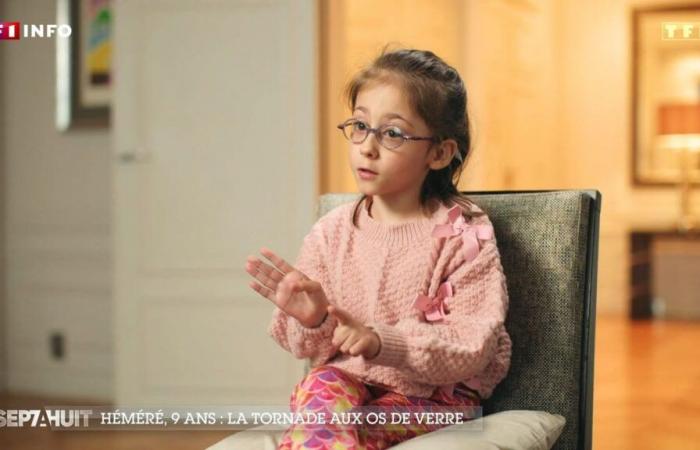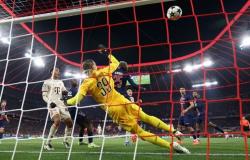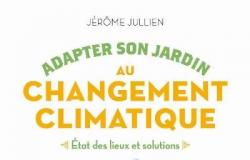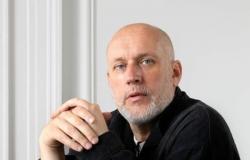
Suffering from brittle bone disease, Héméré risks fracture at the slightest movement.
But the little girl shows unfailing humor.
She answered questions from Audrey Crespo-Mara in “Sept à Huit” this Sunday.
Follow the full coverage
Seven to eight
“My bones are fragile like porcelain”summarizes Héméré to define osteogenesis imperfecta, this rare genetic disease that is often called “brittle bone disease”from which she is affected. At only 9 years old, she shows unfailing optimism in the video at the top of this article, a replay of the portrait of the week from “Sept à Huit” rebroadcast this Sunday.
Osteogenesis imperfecta affects approximately one in 15,000 people. Although they had a 50% chance of inheriting their mother’s disease, Héméré and his twin brother Siméon were both unlucky in the genetic lottery. “And what’s more, he had autism with intellectual disability, yay!” quips the little girl with the black humor that she has made her shell.
“Do not touch, fragile”
“I’m literally a package ‘Don’t touch, fragile’ !”, she jokes in the video to be found at the top of the article. His bones are at risk of fracture without even having suffered a shock. Lately, “I wanted to bend down to pick something up, I bent my knees, and I broke them”she remembers for example. Her very first injury was before she was born, when she broke a bone in her mother’s womb. “What’s the logic?” Héméré asks while responding to Audrey Crespo-Mara. The only memory that makes him lose his smile is that of the pain that accompanies each accident: “It’s taking up too much space for me to think about anything else.”
Support at school
Attended CM1 at the Toulouse-Lautrec high school in Paris, which accommodates 70% of students with disabilities, Héméré is followed by a physiotherapist who makes her do exercises in the middle of her class days. By building muscle, it can prevent fractures and scoliosis, but this work is not painless. Spending hours in the hospital is also unavoidable. “It’s not crazy! Especially since we’ve been waiting 300 years…”she regrets, getting angry to see the doctors talking to her parents rather than to her.
“The brain is not a bone!”
Good student (“at the same time, the brain is not a bone!”), curious and blessed with an elephant’s memory, Héméré only says she is self-conscious about her classmates because of her small size. “The others are colossi, they are 1.30 m tall, that’s not normal! I’m 1.07 m tall!”
-
Read also
Death of Guillaume Bats: what is brittle bone disease, from which the comedian suffered?
Although her mother is in a wheelchair due to osteogenesis imperfecta, the mischievous little girl hopes that her disease will never limit her. “Science is evolving. (…) With a little luck, we can cure a lot of diseases”she hopes when asked about the future. So what does she want to do when she grows up? “Become a scientist”obviously !





